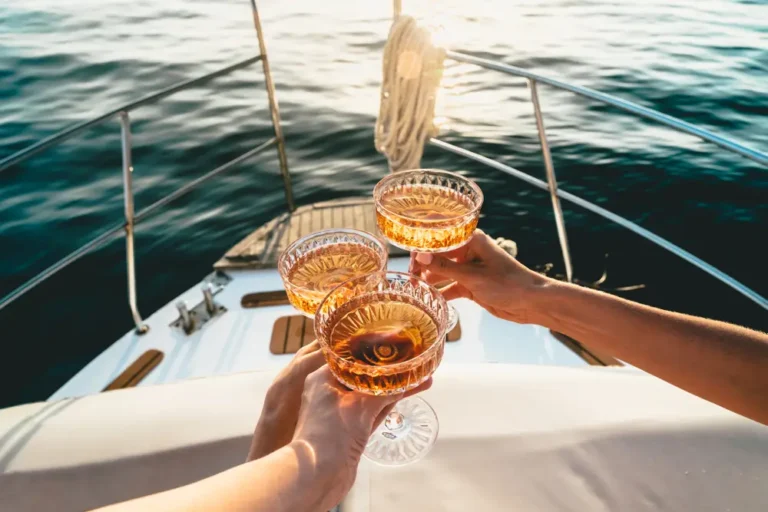Goldman Sachs’ summer internships are coming to a close. A former intern turned partner breaks down the 5 secrets to successfully snagging a return offer.

- A Goldman Sachs internship can be a golden ticket, but getting a job offer isn’t guaranteed.
- Partner Dave Friedland debunks the myth of limited spots and shares the secrets to success.
- Intern India Stephenson says attitude can be more important than financial modeling.
While many college students take internships to build their resumes and earn extra cash, those who spend their summer on Wall Street are looking for the ultimate prize: a full-time job offer.
An investment banking internship has the potential to be a one-way ticket to a job paying $100,000 per year before you even start senior year. As a result, students are highly motivated to demonstrate their worth.
According to popular belief, the goal is to outwork peers by being the “first in, last out” of the office, requesting extra assignments, and attending every social event. As previously reported by Insider, some students were concerned that competition for return offers would be even tougher this year due to a drought in dealmaking and industry-wide layoffs.
But it’s not a knockout ring, at least not at Goldman Sachs. According to a partner at the firm, which is one of the most prestigious and exclusive financial institutions on Wall Street, every intern entering their senior year of college has the opportunity to become a full-time employee after graduation. This implies that if you do not receive an offer, it is your fault (not the macroenvironment).
The fates of this summer’s interns have already been determined. The bank’s nine-week summer program, which includes one week of training, began on June 6 and will conclude today. According to Goldman’s statistics, the firm hosted 2,970 interns this summer, with approximately 500 of them being placed in the investment bank. According to the firm, this 2023 class represented more than 500 universities, 83 languages, and 99 nationalities, and was placed in more than 50 Goldman offices around the world.
Insider spoke with the Goldman partner and a current intern to get a full range of tips on how to excel at the bank and snag a return offer in an effort to help future wannabe bankers succeed.
Dave Friedland, the partner, is the head of the Americas Cross Markets Group, which hosted 24 interns this summer. India Stephenson, the intern, has been working with the consumer retail group.
They recommended that future Goldman interns learn how to multitask and have a solution-oriented mindset, among other things. They also stated that interns should be at ease with failure. Many of their observations are applicable to finance internships right down the street.
The job offer is yours to lose.
According to a person familiar with the program, Goldman’s summer programs are particularly competitive, with acceptance rates for internships across the firm and specifically in investment banking hovering around 1.5%.
Friedland, who has been with Goldman since 1997, began as an intern himself. He is now a member of the Investment Banking Executive Committee and is heavily involved in the firm’s recruiting efforts at Columbia and the University of Michigan. He aids in the selection of interns for full-time positions in his group, which focuses on mid-market corporate and financial sponsor clients.
Friedland dispelled the myth that the bank pits interns against one another to fill limited full-time positions.
“The honest truth is that we have enough capacity for everyone,” he said.**”**We don’t come in and say, ‘OK, there’s 24 of you, but there’s only room for 15,’ and draw a hard line. People don’t believe it, but it’s true.”
“Now, at the end of the summer, not everybody gets an offer,” Friedland admitted. “But that’s not a headcount game or a competition between people.” People who don’t get offers, honestly, most of the time it’s because the person decided this wasn’t for them at some point during the summer, or we’ve collectively decided with the person, this isn’t for you.”
According to him, much of the pressure and competitiveness stems from interactions among students.
“I always tell them that a large part of the pressure in this job comes from your peers.” Don’t do that to each other; there’s enough of it from above. There is enough room for everyone. You’re not going to like it. So that’s fine. Use the summer to decide if you really want it, and don’t add to the stress by putting it on your friends and colleagues. It’s simply not worth it.”
The gig is more than math.
There’s a common misconception that Wall Street analysts spend their days hunched over computers perfecting financial models or knee-deep in spreadsheets. However, Friedland claims that at this level, the job isn’t really about math or technical skills.
“Everyone enters these banking and finance jobs thinking it’s all about Excel, finance, and modeling.” It really isn’t. “The qualitative tasks we assign to people are just as important as the quantitative,” he says. “The truth is, we can teach anyone how to do math.” Some things you just can’t teach people.”
More important, he believes, is how you interact with others and approach your tasks.
“You must ask intelligent questions.” You must be upbeat and enthusiastic. “You have to be willing to try and be okay with failing, because you will make mistakes in this job by definition,” Friedland said. “Do we evaluate people on technical skills when we sit down at the end of the summer?” Yes. However, everyone comes from a different background. We don’t just hire finance majors, so we look for people who are good team players. Do they communicate effectively? Were they responsive and proactive? “Do they put in a lot of effort?”
India Stephenson, a rising senior at Princeton, agreed.
“Once you get here, I think the skills that separate interns are really attitude, enthusiasm, and being a team player; showing up every day willing to work with a smile on your face,” Stephenson told Insider.
Stephenson, a politics major, admitted to being concerned about her lack of technical finance experience. Her classes emphasize analysis and critical thinking rather than memorizing technical skills and formulas.
However, after interning on Goldman’s derivatives team as a rising junior last summer, she was invited back this year to intern in the consumer retail group.****
“It’s an apprenticeship culture, so they want to teach you,” she explains. “They don’t expect you to know everything when you get here, so to be successful, you just need to be super willing to engage with that.”
Find solutions, not problems.
When working on a project, Friedland recommends approaching it with a solution-oriented mindset.
“You don’t walk into someone’s office and say, ‘I don’t know how to do this,'” he explained. “You go into somebody’s office and say, ‘I’ve never done this before, here’s what I was thinking, is that the right way to approach it, or would you give me another suggestion?'”
Friedland also advises interns to take ownership of their work, even if it is as simple as going through the motions.
“Make an effort to understand what you’re doing and why you’re doing it. “Don’t just put the numbers in Excel or the bullet points in PowerPoint,” he advised. “If you take the extra time to understand it, it’s just easier when you’re asked to do something similar.” This is not something you can memorize. You must actually study it.”
That includes owning your mistakes, he added. He used interns who miscalculated how long it would take to complete a task as an example.
“The mistake they make is not returning to the person and saying, ‘I thought I could get this done in an hour.'” It’s been an hour and fifteen minutes. When do you intend to use it? ‘Do you need it tonight or tomorrow?’ “Most of the time, the person says tomorrow will be fine.”
Be a multitasker.
According to Friedland, the ability to multitask is probably the most important skill to have in this role. Because the job “isn’t linear,” he explains. You don’t work on one project at a time, complete it, and then move on to the next.
“You must be agile and adaptable because you will be working on four or five different projects for four or five different people at the same time.” That is extremely difficult. “That’s a real talent,” he said.
“When I sit with the interns, I try to use analogies to explain things to them.” Are you the type of person who studies for one final and then takes it, then studies for the next final and takes it, and so on? Or are you the type of person who can cram for six final exams in two days and study bits and pieces of each one so that when the time comes, you can take them all?”
He described life as a banker as the latter. Interns will need to learn this skill if they don’t already have it because they do real-world work, according to Friedland.
“When they come here for the summer, they work on real clients and real projects, and their role on the team is real.” We don’t make up tasks to keep people occupied. We don’t have someone sit next to someone and observe and shadow them.”
This includes financial analysis and document editing for clients.
“They help make pitch books, client presentations, offering memorandums, if we’re selling a company, or IPO documents,” he explained. “They’re producing and helping to produce a lot of that.”
Admit what you don’t know.
Summer analysts at Goldman Sachs are not expected to know how to do their jobs before they start, regardless of how selective the application process is. Failure to recognize that you don’t know everything, according to Friedland, is a big mistake.
“I think sometimes when people don’t know how to do something, they sit for too long spinning their wheels and trying to figure it out because they want to prove to themselves that they can do it or that they know how to do it,” he said. “It’s a mistake because they’re not completing the tasks on time.” Or they are not being exposed to as many things as they could be because they are focusing too much time on one thing.”
He claims that the real skill isn’t knowing the answer, but rather knowing where to look for it. It’s one of the reasons Goldman assigns each intern a “buddy” — usually a full-time second or first-year analyst tasked with assisting interns with day-to-day questions and conundrums. When Stephenson was nervous before going to the desk, for example, she was open with her colleague.
“She and I talked the week before I started, and I was so honest,” Stephenson explained. “I told them I’m really nervous and don’t know how to model.” “Don’t worry about it,” she said, “I’ll teach you everything you need to know.”
Successful interns “figure out what the questions are and then figure out who to go ask for help,” Friedland says. “This isn’t like a test where you’re supposed to get an A and you’re not supposed to ask your seatmate for help.” Ask your buddy or mentor, or the person who administered the test.”






